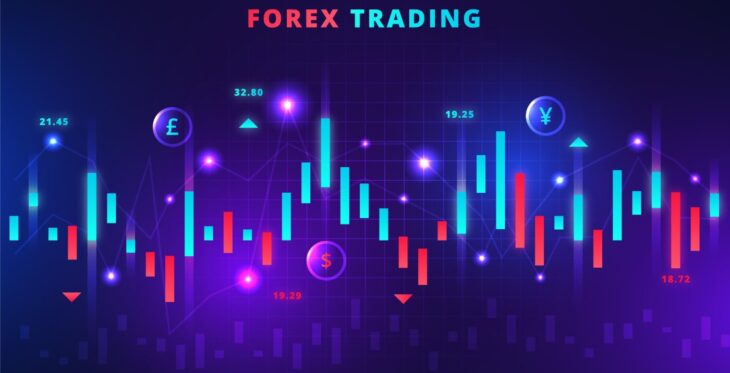When it comes to getting your feet wet in the Forex market, one of the fundamental concepts you must grasp is liquidity. Money has absolute liquidity, and many novice traders depend on this assertion, unaware of the distinction between Forex and broker liquidity.
So, let us briefly explain – Forex stands for Foreign Exchange, and this market works literally 24/7, for those who are interested in trades and exchanges. For those who are beginners in this, the whole concept can be pretty confusing, but we are here to help you out with this one. By accessing b2broker.com you can get to know more about liquidity, and take a part in the market.
Also, you need to know that this is not always limited or necessarily tied to ForEx, and there are many other markets, including the cryptocurrencies, that require an advanced level of knowledge, so you can take a part of it.
Contents
What does Forex liquidity mean?

Source: xm-trading.com
Customers convert one currency to another when it comes to Forex trading, and execution speed is critical. The market consists of millions of bid and ask transactions; nevertheless, a brokerage firm may be unable to work with liquidity providers – i.e., get access to the market’s main participants. What does liquidity provider mean?
Consider the following scenario: a broker has 1,000 registered traders but has submitted no applications to liquidity providers. For example, an order book may include only bids and offers made by registered traders. As a result, one user needs to purchase 100 units of GBP/JPY at the current price of 154.01232. However, the order book only has 15 units at this price. As a result, traders are forced to buy assets at a premium to the market price or risk incurring losses.
In the same scenario, how does a liquidity provider work? A broker’s order book is augmented by external bid and ask transactions. The brokerage firm acts as a middleman between two parties.
You can check the list of liquidity providers on liquidity-provider.com.
The responsibilities of liquidity providers in a nutshell

Source: liquidity-provider.com
There are hundreds of brokerage firms in the market and it is sometimes difficult to establish order, but also to be equally accessible to brokers. High liquidity is of particular importance for the whole market. In this way, it is possible to predict whether a trade will end in a profit or a certain loss, to define the price changes and to see how it will affect the further activity, as well as to help the less experienced brokers to plan their trades and earnings based on facts.
In order for an ordinary person to become a participant in the ForEx market, it is necessary to know the basic elements that forex trading implies, and after mastering the necessary work terminology, to pay attention to the necessary education. Liquidity is one of the main things we need to understand before we take a part in this.
Liquidity providers play a very important role in all of this. They continuously publish results and data that are useful for brokers who are actively involved in trading. Financial institutions are a significant part of liquidity. In a way, these providers are a guarantee and a guarantee that there will be no dizzying ups and downs in the market and that even in the riskiest trades, there will be no serious losses. Only brokers should take this data seriously to avoid such situations.
Cooperation models with liquidity providers

Source: liquidity-provider.com
Brokers may work with liquidity providers (LP) in various ways; nevertheless, all of the models fall under the category of No Dealing Desk (NDD). The Dealing Desk (DD) concept transforms brokers into market makers, with no LPs involved.
The NDD class of models comprises the following:
- The ECN (Electronic Communication Network). A trader receives bid and asks offers that are automatically sent to the market and executed according to the market price. Meanwhile, price slippage is a possibility.
- DM (Direct Market Access). When a trader creates an order, they have the ability to act as both a price giver and a price taker. Brokerage firms present trades directly to liquidity providers.
- The STP (Straight-Through Processing). LPs offer bid and ask rates. When a trader places an order, brokerage firms immediately route it to liquidity providers.
Beginner traders should grasp how liquidity works and which brokerage firms to use. However, what about brokers? How can a brokerage firm locate a liquidity source that is both dependable and powerful?
Our suggestion is to get informed and read as much as possible on this topic from several sources. Knowledge and understanding of the topic are crucial, as some data can easily be overlooked and a catastrophic and costly mistake made. Brokerage companies rely on liquidity providers and vice versa, and the individuals who are an active part of the market depend on them.
Useful tips for brokers looking for liquidity providers

Source: foundersguide.com
There are many liquidity providers, and selecting the right one may be difficult. However, consider the following critical points:
- Deal only with “Tier-1” limited partnerships, which link brokers to the biggest banks and financial institutions.
- Choose global businesses that offer a range of services. Additionally, it is preferable to work with suppliers that provide a variety of additional efficient options (for instance, White Label trading platforms).
- Apply to LPs that offer superior customer service and are prepared to exceed your expectations.
In modern business, one of the phenomena that are recognizable in terms of good organization and programming of work challenges is working time. This category is directly related to the problem of free time, which by vocation is also a good quality of life. Exactly the non-stop working hours on the forex market provide self-organization of the trader, ie trading outside the standard working hours as in the other working sector, which is considered particularly attractive, and that provides forex trading.
In terms of the worldwide market, B2Broker is one of the most exemplary definitions of what does liquidity provider means. The business is always on the lookout for the most innovative and advantageous solutions for brokers.
